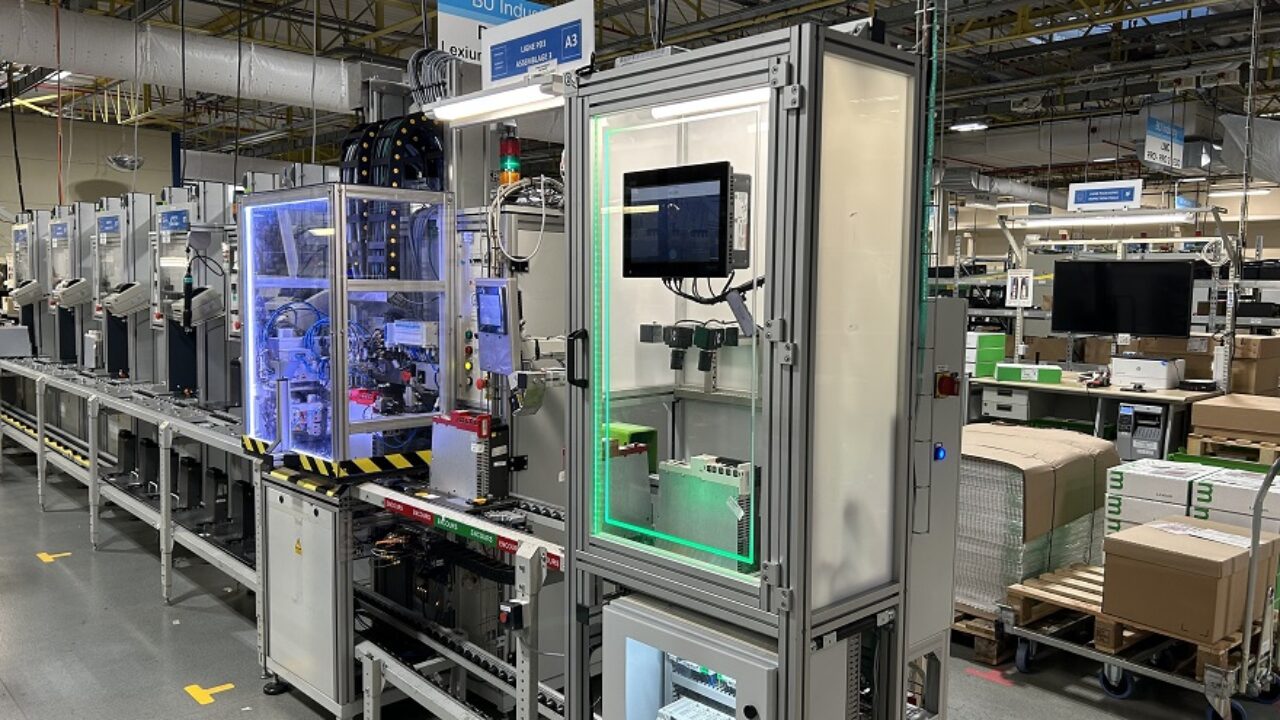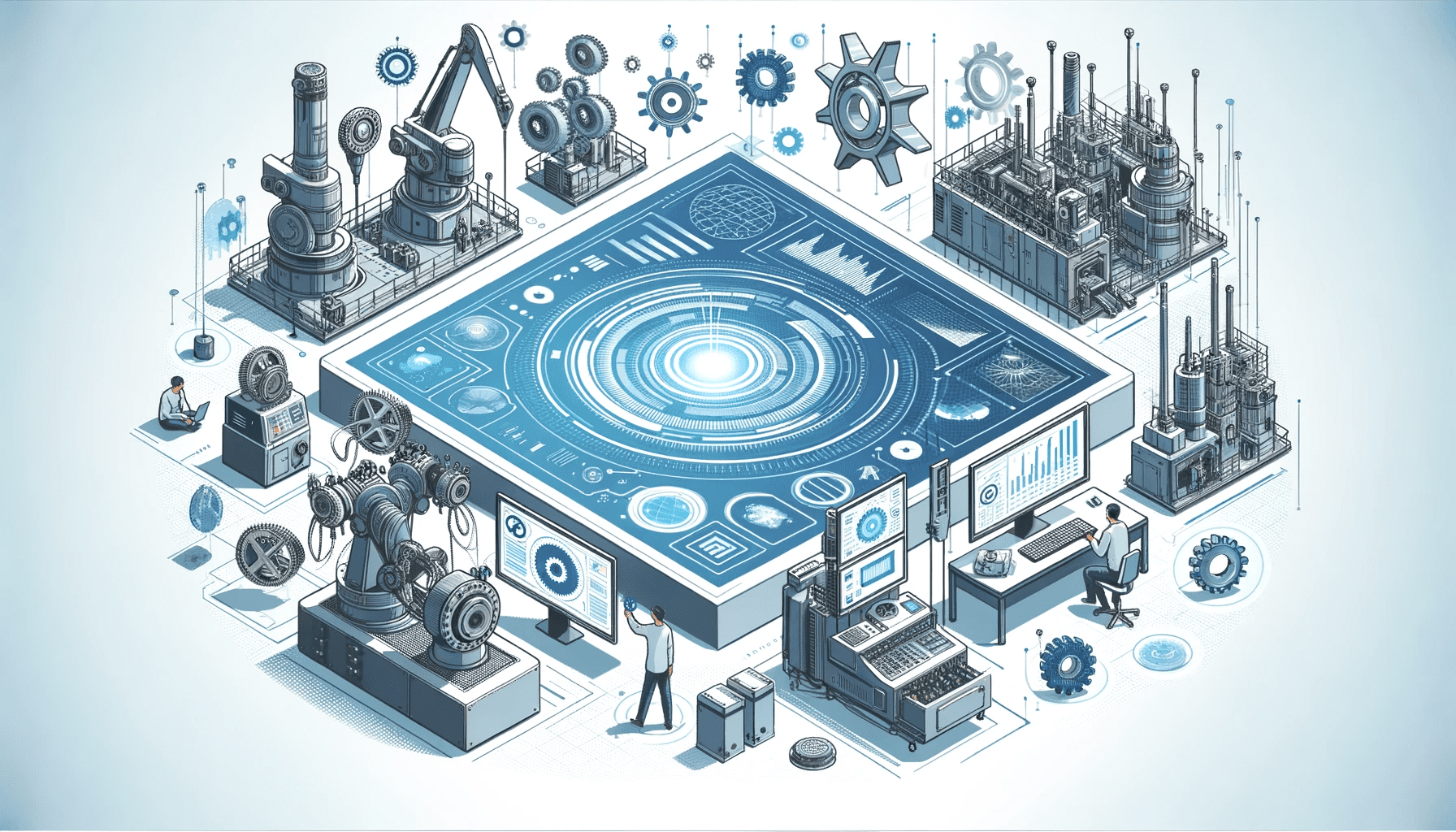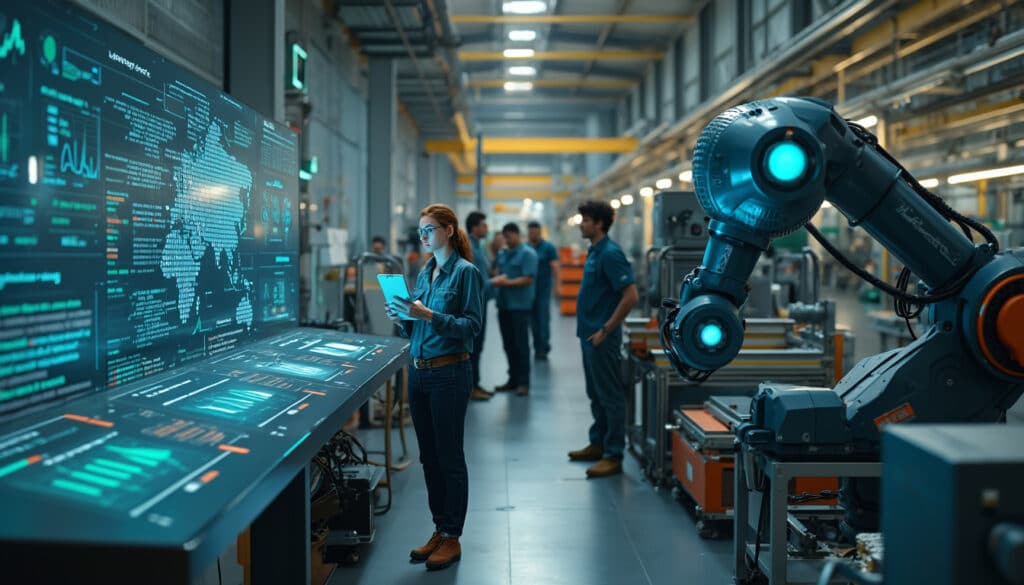The era of Industry 4.0 marks a revolution where *smart factories* transform the way productions are managed. Through the integration of digital technologies, these factories leverage the potential of *Big Data*, thus enhancing the efficiency, productivity, and flexibility of industrial processes. The use of *artificial intelligence* and *Machine Learning* in data collection and analysis provides manufacturers with an unprecedented ability to anticipate needs, reduce bottlenecks, and optimize their operations in real time. By embracing these *data-driven strategies*, companies can not only innovate but also adapt more quickly to market demands and remain competitive in a rapidly changing landscape.
*Smart factories* embody the future of manufacturing by integrating advanced technologies to optimize the entire industrial process through *data-driven strategies*. By analyzing vast amounts of data, manufacturers can improve their efficiency and responsiveness while avoiding unplanned interruptions. This digital transformation, specific to Industry 4.0, requires a robust data processing infrastructure as well as enhanced skills to manage cybersecurity and new technologies. Those who delay adopting this evolution risk facing high operational costs and delays in responding to market demands, while competitors, already equipped with *prediction and automation* tools, gain a decisive advantage.

Table des matières
Togglehow digital industrialization is transforming smart factories
With the advent of *Industry 4.0*, manufacturers are witnessing their processes transform through digital integration. *Smart factories* are not limited to simplified automation; they redefine how data is collected, analyzed, and exploited for tangible gains. This means that data is no longer just a byproduct but a strategic lever enabling an instant response to market demand changes. By combining *machine learning* algorithms with traditional systems, these factories can anticipate and rectify issues before they affect production, thus ensuring unprecedented efficiency.
Moreover, *cloud* architecture allows for exceptional centralization of information, transforming production lines into interconnected networks where information flows in real time. This continuity ensures analytical depth facilitating the prediction of maintenance needs or adjustments of production lines. By harmonizing data from multiple sources, digital factories create equal and flexible production quality, which is essential to meet ever-evolving demand.
adopting data-driven strategies in production
Companies are modernizing their factories by relying on *data-driven strategies*. This involves in-depth data analysis to optimize every step of the production process. The integration of the *Internet of Things (IoT)* has made it possible to connect every element of the manufacturing chain, from individual machines to the final product, with unprecedented precision. By leveraging this ecosystem, manufacturers can refine their ability to respond promptly to production variations. This proactivity is enabled by *Big Data*, which transforms raw information into strategic and effective decisions.
By focusing on accurate and relevant data, manufacturers eliminate inefficiencies and optimize operations at all levels. A keen eye on data also enables anticipating future needs, thereby ensuring not only self-sufficiency but also control over external factors, often unpredictable. This approach completely revolutionizes traditional manufacturing logic, making it more agile and ready for the modern challenges of a globalized market.
the challenges of integrating connected factories
Although promising, integrating *connected factories* presents several challenges. The first step is to sync a wide range of core systems while ensuring data security. *Cyberattacks* become a major risk as interconnectivity expands. To safeguard against this, it is essential to implement robust protocols ensuring the confidentiality and integrity of exchanged information. This is why establishing effective devices and practices focused on resilience is crucial.
Another challenge lies in the development and training of the workforce. Traditional skills are no longer sufficient; expertise in *digital technology* and data management becomes imperative. Furthermore, maintaining a balance between technology and human processes is vital to avoid interruptions. When wisely implemented, these strategies transform the factory not only into a production site but into a space for innovation and sustainable growth.
Usines intelligentes : la quatrième révolution industrielle http://t.co/rwvfWpX8Du via @BoschSI #industrie40 pic.twitter.com/Bq9u71mGkg
— Bosch Rexroth France (@BoschRexrothFR) May 27, 2015





